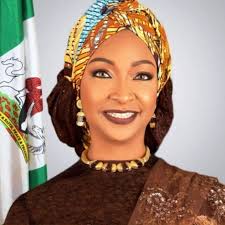By Atoyebi Nike
The Minister of Art, Culture, and Creative Economy, Hannatu Musawa, says disunity among Nigerian women is a major reason for their weak presence in politics. She said women have the numbers and passion but lack the organization needed to influence leadership.
Musawa spoke in Ikenne Remo, Ogun State, at a dialogue hosted by the H.I.D. Awolowo Foundation. The event, themed “Breaking Barriers or Standing Still?”, reviewed Nigeria’s progress since the 1995 Beijing Declaration on gender equality. A communiqué signed by Dr. Tokunbo Awolowo-Dosumu urged Nigeria to adopt more inclusive and female-friendly political practices.
The gathering also honored H.I.D. Awolowo on her 110th posthumous birthday, shortly after the passing of her grandson, Segun Awolowo, at 62. Attendees included Awolowo-Dosumu, Senator Daisy Danjuma, Deputy Governor Noimot Salako-Oyedele, Senator Uche Ekwunife, and Prof. Olabisi Aina.
Musawa said progress has been slow despite Nigeria’s commitments under the Beijing Platform for Action. She noted that women’s voices remain scattered, making it easier for the system to ignore them. She called for solidarity across political, religious, and regional lines, adding that collaboration with men is essential for reforms.
Senator Danjuma said women still face limited political opportunities and linked Nigeria’s slow development to their exclusion. She pointed out that countries with rapid progress often have at least 30% female representation.
Awolowo-Dosumu urged women not to lose momentum, recalling her mother’s courage in contesting for prime minister in 1965 despite Chief Obafemi Awolowo’s imprisonment. She said “30 years after Beijing” should be a call to action, not a symbol of stagnation.
Deputy Governor Salako-Oyedele asked political parties to support women with quotas and reduced nomination fees.


